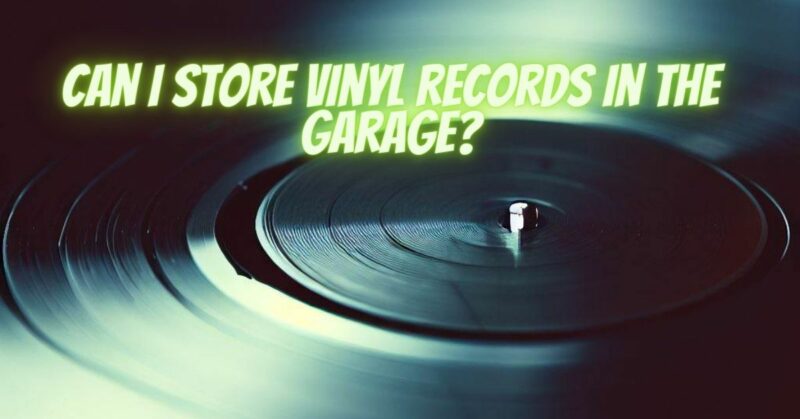Proper storage is crucial for preserving the quality and longevity of vinyl records. When evaluating storage options, many vinyl enthusiasts wonder whether storing records in the garage is a viable choice. In this article, we will explore the factors to consider when contemplating garage storage for vinyl records, helping you make an informed decision about the best storage location for your valuable collection.
Climate and Temperature Control:
Garages are typically subject to fluctuating temperatures and humidity levels, which can adversely affect vinyl records. Extreme heat, cold, or humidity can cause warping, cracking, or mold growth, leading to irreparable damage. Additionally, temperature fluctuations can result in the expansion and contraction of vinyl, increasing the risk of groove distortion and playback issues. It is recommended to store records in a climate-controlled environment to maintain their integrity.
Exposure to Moisture and Humidity:
Garages can be susceptible to moisture and humidity, especially in regions with high humidity levels or during periods of heavy rainfall. Moisture can seep into record sleeves, leading to mold, mildew, and irreversible damage to both the record and its cover. Humidity can also cause the accumulation of condensation, leading to warped records or surface damage. It is important to keep vinyl records in a dry environment to prevent moisture-related issues.
Protection from Dust and Debris:
Garages often harbor dust, dirt, and various debris, which can find their way onto vinyl records. Dust particles can settle on the record surface, affecting playback and causing unwanted noise. Additionally, the presence of debris increases the risk of scratches or other physical damage when records are handled or moved. A clean and dust-free environment is ideal for maintaining the pristine condition of vinyl records.
Security and Safety Concerns:
Garages may not provide the same level of security as indoor living spaces. Factors such as break-ins, potential water leaks, or accidental damage from storage items can pose risks to your valuable vinyl collection. Consider the overall security and safety of your garage space when deciding on record storage.
Alternative Storage Options:
If storing records in the garage is not feasible, consider alternative storage locations within your home, such as a dedicated room, shelves, or cabinets away from direct sunlight, heat sources, or humidity. Ensure the storage area is clean, dry, and properly ventilated. Additionally, investing in specialized record storage solutions, such as record crates, shelving units, or record storage boxes, can help protect and organize your vinyl collection.
While garages may provide additional storage space, they are generally not an ideal location for storing vinyl records due to temperature fluctuations, humidity, potential moisture exposure, dust, and security concerns. Vinyl records require a controlled environment to maintain their integrity and sound quality. It is advisable to store records in a clean, dry, and climate-controlled area within your home to ensure their long-term preservation. By prioritizing the proper storage conditions, you can enjoy your vinyl collection for years to come without compromising its quality.


